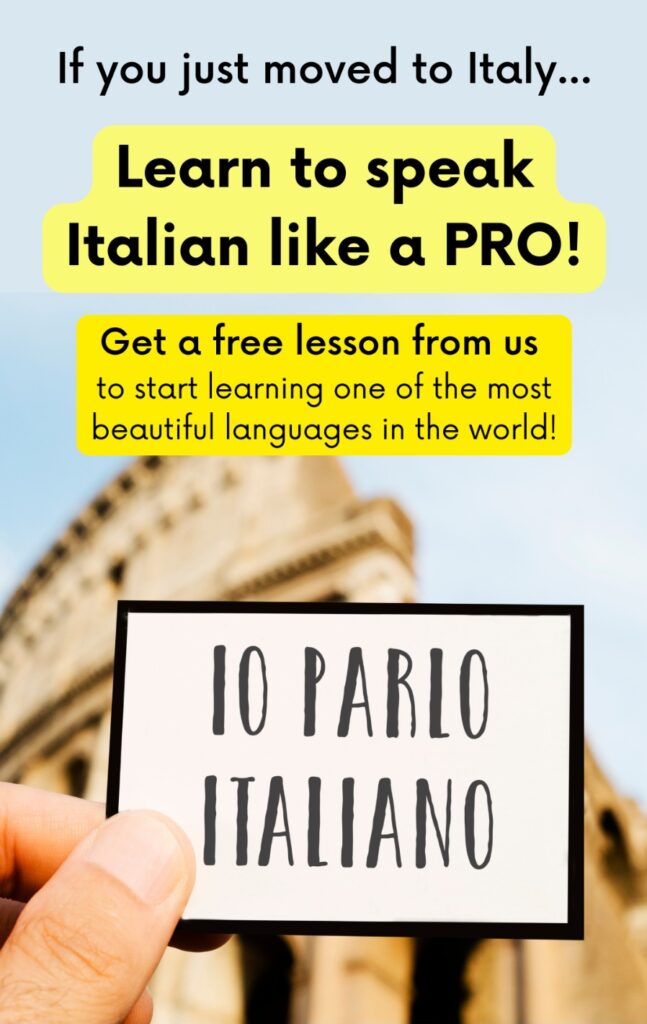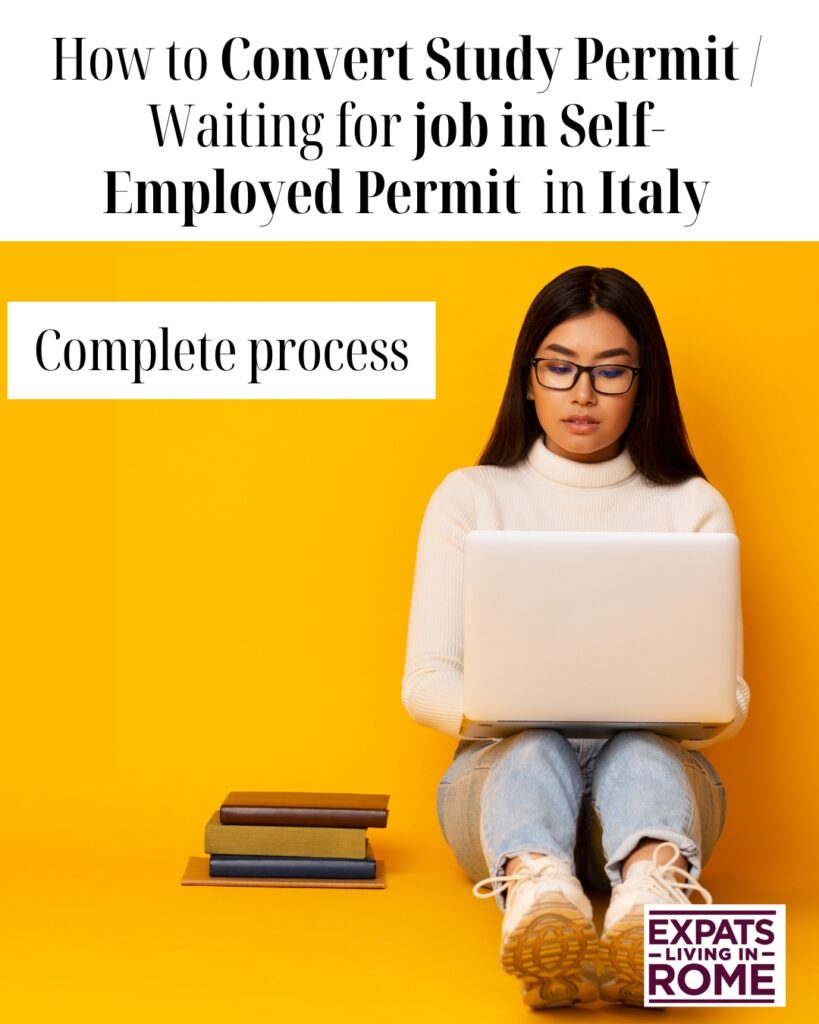How to cope with homesickness and culture shock as an expat in Italy
by Adriana ruiz
Moving to a new country can be an exciting and rewarding experience, but it can also bring some challenges and difficulties. When you move you may face different customs, languages, values, and expectations that can make you feel confused, frustrated, or isolated. You may also miss your family, friends, and familiar surroundings that you left behind. These feelings are normal and common, and they are part of what is known as culture shock and homesickness.
Culture shock is the psychological and emotional reaction to living in a new and unfamiliar culture. It can affect anyone, regardless of their age, background, or previous travel experience. Culture shock can manifest in different ways, such as:
– Feeling anxious, irritable, or depressed
– Having difficulty sleeping or eating
– Feeling bored, lonely, or alienated
– Having trouble communicating or making friends
– Feeling insecure or inadequate
– Experiencing physical symptoms such as headaches, stomach aches, or fatigue.
Homesickness is the longing for the familiar and comfortable aspects of your home country. It can be triggered by various factors, such as missing your loved ones and social support; favourite foods, hobbies, or activities; sense of identity and belonging; routine and structure; cultural norms and values.
Both culture shock and homesickness are natural and temporary responses to a major life change. They do not mean that you are weak or that you made a wrong decision. They are part of the process of adapting to a new environment and learning to appreciate its diversity and richness. However, if left unaddressed, they can affect your well-being, performance, and satisfaction. Therefore, it is important to find healthy and effective ways to cope with them and to make the most of your experience abroad.
Here are some tips and resources that can help you deal with culture shock and homesickness:
Prepare yourself before you go
Do some research on the country and culture that you are moving to. Italy has a rich and diverse culture influenced by the Roman Empire and the Renaissance1. Learn about its history, geography, politics, economy, religion, art, and cuisine. Try to learn some basic words and phrases in the local language, which is Italian for most of the population, but there are also many dialects and minority languages spoken in different regions. Find out about the practical aspects of living there, such as the climate, which varies from the Mediterranean in the south to the Alpine in the north, transportation, which includes trains, buses, taxis, and cars, health care, which is universal and public, but also has private options, education, which is compulsory and free until age 16, and legal system, which is based on civil law and has a parliamentary republic as the form of government.
Keep an open mind and a positive attitude
Be curious and respectful of the differences that you encounter. Italy has a diverse and complex society, with many regional and local identities, traditions, and customs. Try to see them as opportunities to learn and grow, rather than as threats or obstacles. Avoid making judgments or comparisons based on your own culture. Instead, try to understand the reasons and meanings behind the behaviours and values of the people that you meet. For example, Italians are generally warm, friendly, and expressive, but they also value privacy, respect, and etiquette. They may greet you with a kiss on both cheeks, but they may also expect you to dress appropriately, use formal titles, and follow certain rules of dining and conversation.
Immerse yourself in the local culture
Try to get involved in the local community and activities. Join a club, a class, a volunteer project, or a social group that interests you. There are many opportunities to meet new people and learn new skills in Italy, such as sports, arts, languages, cooking, and gardening. Visit the local museums, galleries, parks, and monuments. Italy has a rich and varied cultural heritage, with many UNESCO World Heritage Sites, such as the Colosseum, the Leaning Tower of Pisa, the Vatican City, and the Venice Lagoon. Attend the local festivals, events, and celebrations. Italy has a lively and colorful calendar of festivities, such as Carnival, Easter, Christmas, and many regional and local holidays, such as the Palio of Siena, the Feast of San Gennaro, and the Festa della Repubblica. Taste the local food and drinks. Italy is famous for its cuisine, which is based on fresh, seasonal, and local ingredients, such as pasta, pizza, cheese, wine, and coffee. Each region and city has its own specialties and recipes, such as lasagna, risotto, tiramisu, and gelato. Listen to the local music and watch the local shows. Italy has a rich and diverse musical tradition, from opera to folk to pop. Some of the most famous Italian musicians and composers are Luciano Pavarotti, Andrea Bocelli, Ennio Morricone, and Laura Pausini. Italy also has a vibrant and influential cinema industry, with directors such as Federico Fellini, Roberto Rossellini, Sergio Leone, and Paolo Sorrentino. Learn about the local history and traditions. Italy has a long and fascinating history, from the ancient Romans to the modern republic. You can learn about the historical figures, events, and movements that shaped the country and the world, such as Julius Caesar, Dante Alighieri, Leonardo da Vinci, Galileo Galilei, Giuseppe Garibaldi, Benito Mussolini, and Silvio Berlusconi. You can also learn about the traditions and symbols that represent the Italian identity and culture, such as the flag, the anthem, the coat of arms, and the national motto: “L’Italia e’ una Repubblica fondata sul lavoro” (Italy is a Republic founded on work).
Stay in touch with your home country
Maintain regular contact with your family and friends back home. Share your experiences, feelings, and challenges with them. Ask them about their lives and news. Send them photos, videos, and souvenirs. Celebrate your home country’s holidays and special occasions. Use technology such as phone, email, social media, or video calls to stay connected. This will help you to feel supported, loved, and less lonely. You can also find other people from your home country who live in Italy, and join their communities and networks. You can also access your home country’s media and entertainment, such as newspapers, magazines, TV shows, and movies, online or through satellite.
Take care of yourself
Eat well, exercise regularly, and get enough sleep. Find ways to relax and unwind, such as listening to music, reading a book, or meditating. Seek professional help if you feel overwhelmed. Remember to celebrate your achievements and enjoy your experience. Living in a new country can be challenging, but also rewarding and enriching. You can learn a lot from Italy and its people, and also share your own culture and perspective with them. You can make the most of your time in Italy by being prepared, open-minded, curious, respectful, and positive. Buona fortuna! (Good luck!)
Read more about:
The Colossal Statue of Constantine: FREE Exhibition at the Capitoline Museums
A Guide to Living in Italy with a Dog
15 Must-Visit Museums, Galleries, and Cultural Sites in Italy
Don’t Miss the Chance to Visit the Vatican Museums for Free
A Guide to Visiting the Vatican Museums
Italy’s Most Enchanting Towns Accessible by Train
New Celio Archaeological Park in Rome – Free Admission
Learn Italian and open up new possibilities for your career and personal growth
Prepare for the CILS B1 Citizenship exam to obtain citizenship by marriage, residence or study or work in Italy.
Switching to a self-employment permit from a study or job-seeking one
FAQs for Italian Citizenship by Marriage (2023)
Understanding the Tessera Sanitaria: Your Italian Health Insurance Card
Non-Married Partners: How to Obtain a Residence Permit in Italy as De Facto Cohabitants
How to get tax identification number for foreign citizens (Codice Fiscale)
How to register in Italy as an EU citizen
Mastering Public Transport in Italy
The Advantages of Dual Citizenship with an Italian Passport: Unlocking Boundless Opportunities
What you need to know about Visas and Permits to stay in Italy
Red flags to identify a scam when renting in Italy





Leave a Comment:
You must be logged in to post a comment.